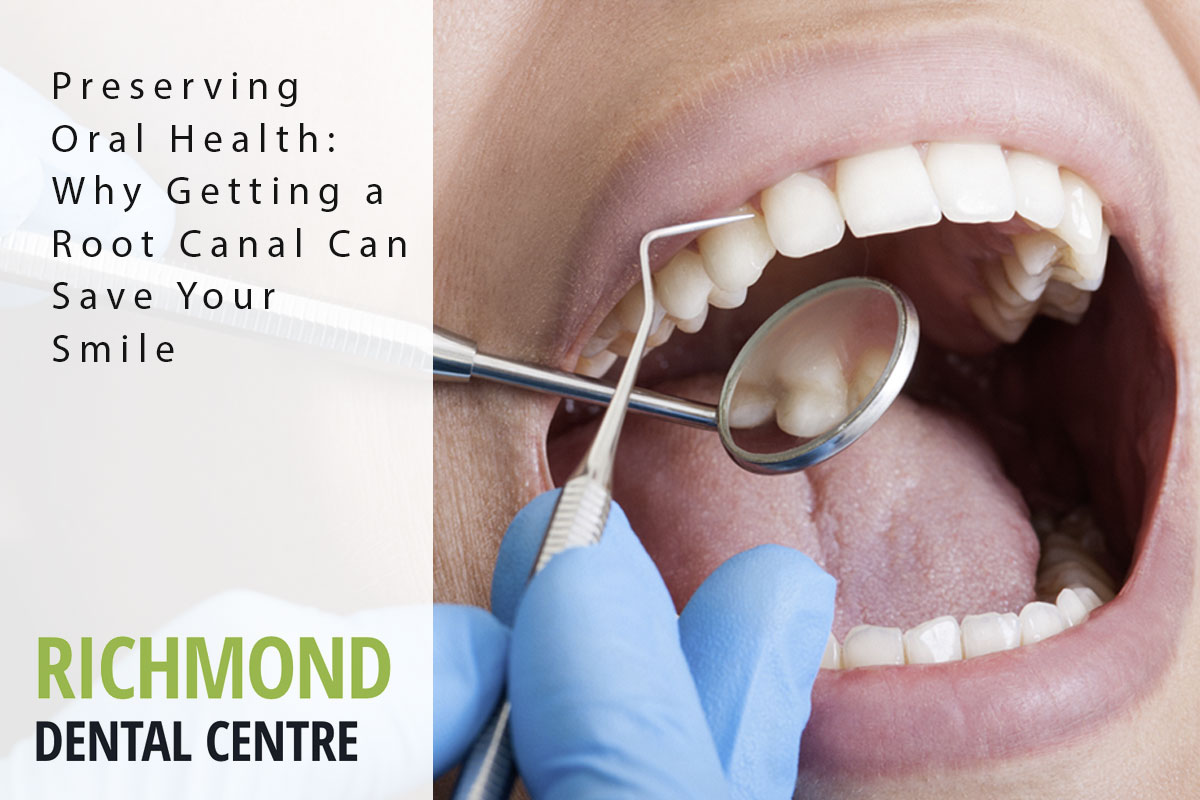Persistent and unbearable tooth pain? It might be time to consider a root canal. While the idea of this dental procedure can be unsettling, grasping its significance in preserving oral health can bring relief. In this article, we delve into how a root canal can save your smile and relieve pain. Join us as we explore the benefits, discovering how this procedure can rescue your smile, restore functionality, and enhance overall oral health.
What is a root canal?
A root canal is a dental procedure done by a dentist or endodontist to address severe tooth infection or decay, aiming to preserve the natural tooth. It involves removing the damaged pulp and cleaning the tooth’s root canal, which houses nerves, blood vessels, and connective tissue. If left untreated, pulp infection can cause intense pain and lead to further oral health problems. Despite initial concerns, a root canal is a highly effective and safe procedure, offering long-term relief from pain and discomfort while keeping the natural tooth intact.
Signs and symptoms that indicate the need for a root canal
Several signs and symptoms may suggest the need for a root canal such as:
- Persistent Tooth Pain: Continuous or worsening toothache, especially with throbbing pain, may indicate infection or decay affecting the tooth pulp.
- Temperature Sensitivity: Sudden pain or sensitivity to hot or cold foods, persisting even after the stimulus is removed, suggests potential nerve compromise within the tooth.
- Swelling and Tenderness: Inflammation and tenderness around the affected tooth or gums, often accompanied by redness or swelling, could signal an infection.
- Discoloration: Noticeable darkening or the development of dark spots on a tooth may indicate internal damage or decay affecting the tooth’s blood vessels.
- Gum Abscess: The formation of a pus-filled pocket at the tooth’s root, causing severe pain, swelling, and a pimple-like bump on the gums, is a clear sign of infection that may require a root canal.
Benefits of getting a root canal
Undergoing a root canal offers various benefits beyond relieving tooth pain. Here are key advantages of this dental procedure:
- Preserving Natural Teeth: A root canal allows you to save your natural tooth, crucial for maintaining a healthy smile, proper chewing, speaking, and tooth alignment.
- Relief from Pain: By removing damaged pulp and cleaning canals, a root canal provides immediate relief from severe tooth pain, addressing the root cause of discomfort.
- Preventing Infection Spread: Untreated tooth infections can spread to surrounding areas. A root canal stops the infection by removing damaged pulp and sealing canals, preventing further spread.
- Improving Oral Health: Addressing the root cause enhances overall oral health, eliminating infection, reducing the risk of abscesses or gum disease, and promoting a healthy smile.
- Restoring Tooth Functionality: After a root canal, the treated tooth is fully functional with a dental crown or filling, allowing normal chewing and biting without discomfort.
- Enhancing Appearance: A root canal improves smile aesthetics, as the dental crown or filling matches the color and shape of natural teeth for a seamless result.
- Cost-Effective: Despite initial perceptions, a root canal is often more cost-effective than alternatives like extraction and replacement, preventing the need for extensive and costly dental work in the future.
Preparing for a root canal appointment
Preparing for a root canal appointment involves a few straightforward steps to ensure a smooth procedure and your comfort throughout. Here are some tips to help you get ready:
- Communicate with your dentist: Share any concerns, questions, or your medical history with your dentist before the appointment. This helps tailor the treatment plan to your needs for a comfortable experience.
- Follow provided instructions: Your dentist may give specific instructions, such as avoiding certain foods or adjusting medications before the root canal. Adhering to these guidelines is crucial for a successful procedure.
- Arrange transportation: Depending on anesthesia use, arrange for someone to drive you to and from the dental office to ensure your safety and comfort.
- Eat a light meal: Consume a light meal before the root canal for energy and to prevent hunger during the procedure. Avoid extremely hot or cold foods due to potential tooth sensitivity.
- Practice good oral hygiene: Thoroughly brush and floss your teeth, paying extra attention to the affected tooth. This reduces the risk of additional infection and maintains a clean environment for the root canal.
By following these steps, you contribute to a smooth and successful root canal appointment. Consult with your dentist for any specific instructions tailored to your unique situation.







